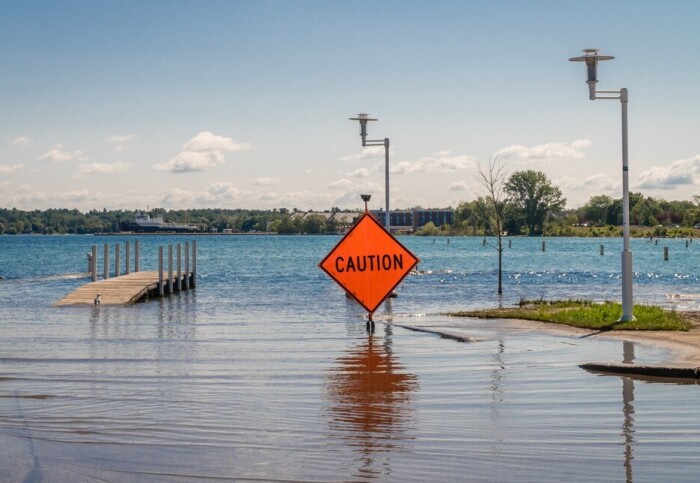Reversing global warming as part of a climate overshoot likely to be difficult

Temporarily exceeding global temperature rise of 1.5°C likely to come with long-term consequences, according to a new study.
Researchers analysed future scenarios in which global temperatures temporarily exceed 1.5°C above pre-industrial level and are brought back down in the long run.
The earlier we can get to net zero, the lower peak warming will be, and the smaller the risks of irreversible impacts. Professor Joeri Rogelj
They found that such an overshoot comes with irreversible consequences, and that rapid near-term emission reductions are essential to reducing climate risks. These consequences include sea-level rise and local species extinctions, as well as melting of permafrost and degradation of northern peatlands, which in turn will contribute more to global warming through methane emissions.
The research, by 30 scientists including from Imperial College London, is published today in Nature.
Senior author Professor Joeri Rogelj, Director of Research at Imperial’s Grantham Institute, said: “A world that has overshot 1.5° C will look different to one that didn’t, even if both reach the same temperature in the long run.
“Until we get to net zero, warming will continue. The earlier we can get to net zero, the lower peak warming will be, and the smaller the risks of irreversible impacts.”
Critical decade
The Paris Agreement established 1.5 °C warming beyond pre-industrial temperatures as the long-term limit for global temperature increases. It has been proposed that temporarily exceeding this target, termed an overshoot, and then reversing subsequent warming to below 1.5 °C may be possible.
This would require achieving net negative carbon emissions, which will rely on the development of carbon removal technologies. However, the impacts of overshoots on climate change are unclear.
The team analysed modelling simulations of overshoot pathways and long-term climate stabilisation, finding that global and regional climate changes differ between scenarios where overshoots do or do not happen.
They found that following an overshoot, many aspects of the Earth system – such as species abundance, carbon stocks and biodiversity on land – may not return to pre-overshoot levels. They also highlight the benefits of temperature decline for reducing long-term climate risks including sea-level rise, and permafrost and peatland loss.
Lead researcher Dr Carl-Friedrich Schleussner, Head of the Integrated Climate Impacts Research Group at the International Institute of Applied Systems Analysis and Scientific Advisor at Climate Analytics, said: “This paper does away with any notion that overshoot would deliver a similar climate outcome to a future in which we had done more, earlier, to ensure to limit peak warming to 1.5°C.
“Only by doing much more in this critical decade to bring emissions down and peak temperatures as low as possible, can we effectively limit damages.”
Preventive capacity
The paper highlights that if we were to exceed 1.5°C there are clear benefits to reversing warming by acting to achieve net negative emissions globally. Achieving long-term temperature decline could lower sea level rise in 2300 by about 40cm compared to a situation in which temperatures merely stopped rising.
The study emphasises that while there are still pathways open to limiting warming to 1.5°C or lower in the long run, there is a need to ‘hedge’ against higher warming outcomes if the climate system warms more than median estimates.
To do this, ambitious emissions reductions need to go hand in hand with scaled and environmentally sustainable carbon dioxide removal technologies. A ‘preventive capacity’ of several hundred gigatonnes of net removals might be required.
Co-author Gaurav Ganti, a research analyst at Climate Analytics, said: “There’s no way to rule out the need for large amounts of net negative emissions capabilities, so we really need to minimise our residual emissions. We cannot squander carbon dioxide removal on offsetting emissions we have the ability to avoid.”
Dr Schleussner concluded: “Our work reinforces the urgency of governments acting to reduce our emissions now, and not later down the line. The race to net zero needs to be seen for what it is – a sprint.”
The study is the culmination of a three-and-a-half-year project, backed by the European innovation fund HORIZON2020.
---
Based on a press release by Climate Analytics.
‘Overconfidence in climate overshoot' by Carl-Friedrich Schleussner et al. is published in Nature.
Article text (excluding photos or graphics) © Imperial College London.
Photos and graphics subject to third party copyright used with permission or © Imperial College London.
Reporter
Hayley Dunning
Communications Division